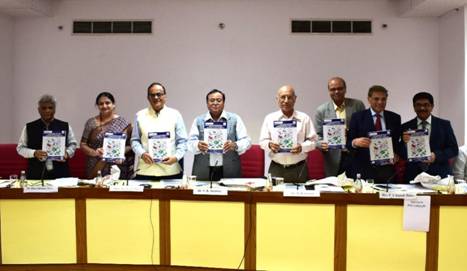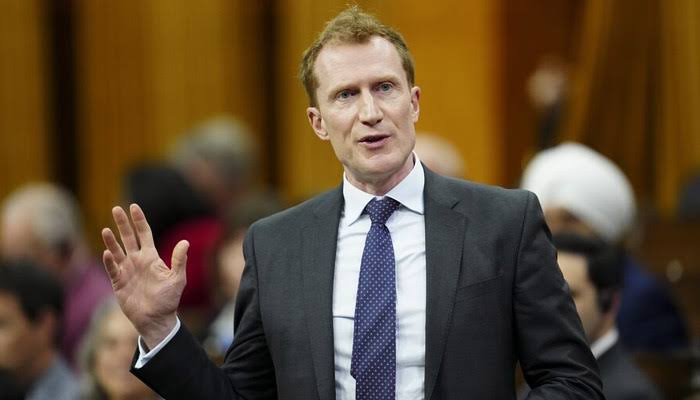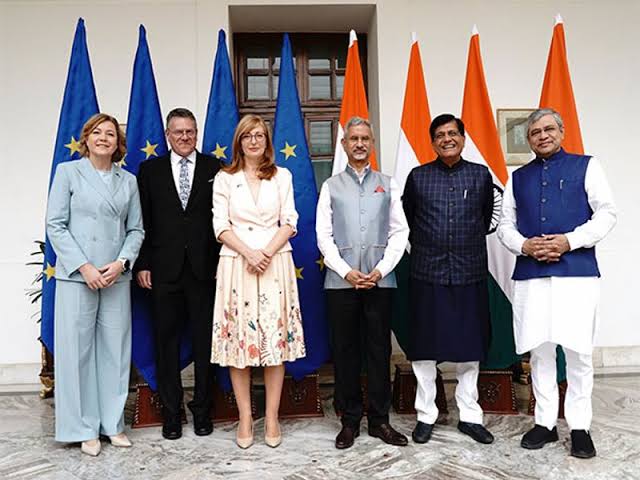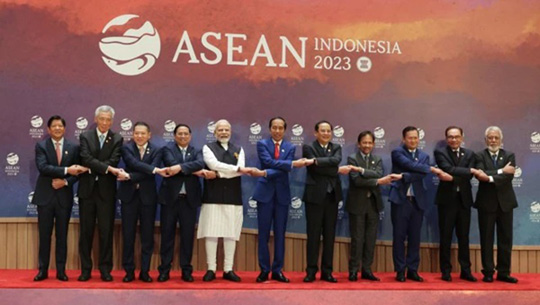The launch event for the report titled “Synchronizing Energy Transitions Towards Possible Net-Zero for India: Affordable and Clean Energy for All” was held on April 3, 2024, at 2 pm in Committee Room ‘A’, Vigyan Bhawan Annexe, New Delhi. This report, prepared by IIM Ahmedabad, was part of a study project initiated by the Office of the Principal Scientific Adviser to the Government of India in November 2021, with partial funding from the Nuclear Power Corporation of India Ltd (NPCIL).
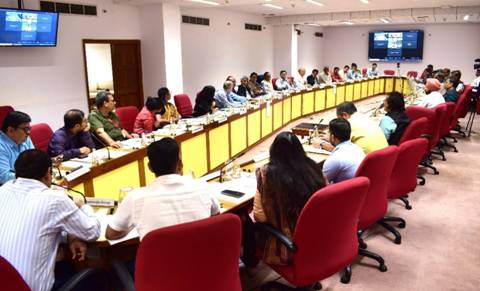 Prof. Ajay Kumar Sood, the Principal Scientific Adviser (PSA) to the Government of India, unveiled the report in the presence of distinguished dignitaries such as Dr. V. K. Saraswat, Member of NITI Aayog; Dr. A. K. Mohanty, Secretary of the Department of Atomic Energy (DAE) and Chairman of the Atomic Energy Commission (AEC); Shri P. A. Suresh Babu, Distinguished Scientist and Director (HR) of NPCIL, representing the CMD, NPCIL; and Dr. (Mrs.) Parvinder Maini, Scientific Secretary, Office of PSA. Dr. Anil Kakodkar, Chancellor of Homi Bhabha National Institute (HBNI) and former Chairman of AEC, participated as the Guest of Honour via an online platform.
Prof. Ajay Kumar Sood, the Principal Scientific Adviser (PSA) to the Government of India, unveiled the report in the presence of distinguished dignitaries such as Dr. V. K. Saraswat, Member of NITI Aayog; Dr. A. K. Mohanty, Secretary of the Department of Atomic Energy (DAE) and Chairman of the Atomic Energy Commission (AEC); Shri P. A. Suresh Babu, Distinguished Scientist and Director (HR) of NPCIL, representing the CMD, NPCIL; and Dr. (Mrs.) Parvinder Maini, Scientific Secretary, Office of PSA. Dr. Anil Kakodkar, Chancellor of Homi Bhabha National Institute (HBNI) and former Chairman of AEC, participated as the Guest of Honour via an online platform.
The objective of the study was to analyze the energy transition necessary for achieving a net-zero energy basket for India. Led by Prof. Amit Garg from the Public Systems Group at IIM Ahmedabad, the project team collaborated with an expert group comprising specialists from various power generation sectors, including coal, nuclear, solar, wind, and biofuels. The report underwent rigorous review by both the expert group and Tata Consulting Engineers Limited.
Key conclusions from the report include the necessity of multiple pathways for achieving net zero, the continued role of coal in the energy system for the next two decades, the critical importance of nuclear power and renewable energy, and the need for decarbonization in the electricity sector. The report also emphasizes the financial implications and technological advancements required to facilitate the transition.
Prof. Ajay Sood highlighted the significance of the report in providing a holistic view of India’s energy sector and emphasized the need for collaborative efforts across various sectors. Dr. Anil Kakodkar stressed the importance of developing low-cost hydrogen production technologies, while Dr. V. K. Saraswat expressed satisfaction with the report’s findings and emphasized the importance of a development-led approach to clean energy transition.
Dr A. K. Mohanty provided insights into the ongoing nuclear program and highlighted the report’s significance for policy formulations. Prof. Ajay Sood concluded by expressing optimism that the report would inform planning efforts in clean energy and be taken seriously by relevant stakeholders.

